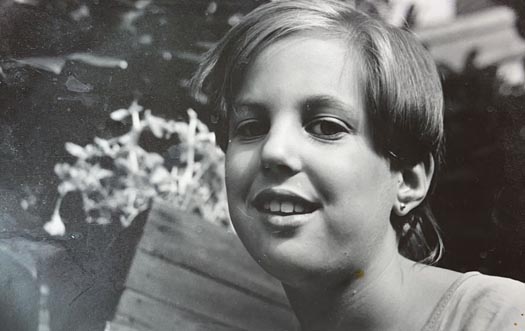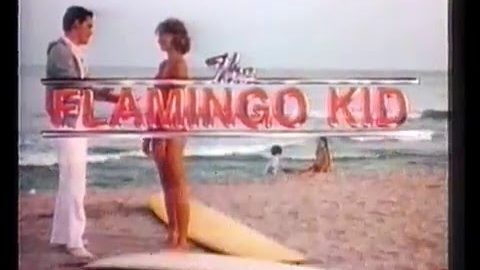
Megan Jessica Tomlin, aged 7. Photo credit: Cathy McLean.
When out for a walk in our Kitsilano neighbourhood when Megan was 7 years of age, as we were walking down the street heading towards Jericho Beach, Megan stopped and turned to me, and said in a matter-of-fact and portentous manner, “Dad, when I grow up, I’m going to get married.”
“Good for you,” I said to Megan in response.
As we were nearing McBride Park on that sunny summer 1984 Saturday afternoon, Megan pulled me over to sit on the grass opposite the tennis courts to begin a discourse on her thoughts on marriage …
“I could marry a poor boy, and I would love him, and he would love me, and we would have children together, and be as happy as happy could be every moment of our lives together, for many, many years of wedded bliss, happily raising our children together, all of us loving one another.”
“On the other hand, I could marry a rich boy, someone I could love with all my heart, and we would have children, and love our children as much as it possible for a parent to love their children — which, if you and mom are any indication as to how much love there is to be given to their children, is a huge love, one of immense and sustaining proportion.”
“Now, if I was to marry the rich boy, and we were to have children together, as we most assuredly would, each of the children would have their own bedroom, and my husband and I would have ours. My children would not want for anything, ever, we could travel, and every day of our lives together would be filled with joy untold, our love for one another carrying us through all of our days, in a life of immense satisfaction and happiness, in comfort and without concern to distract from our lives.”
“Y’know, Dad, if I have a choice, I am going to marry the rich boy.”
Megan’s extemporaneous but thoughtful treatise on marriage was surprising for a number of reasons, the most prominent being that her mother and I were in the midst of an overtly contentious and very ugly divorce and custody battle that had gone on for some years — which both Jude and Megan found themselves precipitously and distressingly in the middle of — so I found it to be a bit more than surprising she would ever want to marry, given what she was experiencing with her own parents, that she had quite obviously given the matter some thought, and how pragmatic she was about whom she might choose to marry, and the — forgive me for saying so, but somewhat mercenary — criteria she had set for her future intended, and the tenor of the married life she felt assured would follow.
Make no mistake, Megan was raised as a feminist and a socialist — at least by me, her mother’s “politics” post marriage reverting to the conservative politics of her parents, and the peers of her distinctly privileged youth.
Over time, Megan and I returned to the topic of her future marriage — still many, many years away — as I took pains to impress upon Megan the necessity of agency, that she should always be true to herself and to her values of compassion and contribution, that love must be a part of her life always, but not if it were to come at the expense of her independence and place in society as a difference maker striving to make ours a better and more just world for all.
From time to time, Cathy would catch wind of my philosophizing and say to me, “Stop lecturing the kids. They don’t like it!”
And Megan?
Yes, Megan married the “rich boy”, the two very happy together, their children perhaps not quite so much (children, as we all know can be, and often are, rebellious, as Megan was with her mother most of the time she was growing up, and as she often was with me — honestly, it’s to be expected), although her children (and her lovely and successful husband, Maz) love her to distraction, Megan in “middle age” quite the sophisticated (if too bourgeoise for my tastes, if I might be so bold as to say so) woman of 46 years of age, her life not having taken the path of her best friend growing up, Kasari Govender (she/her/hers, who took office as B.C.’s first independent Human Rights Commissioner on September 3, 2019), but for Megan, her life still one of meaning and substance, if not quite the degree of societal contribution for which she possesses an unparalleled aptitude.

